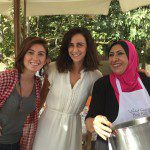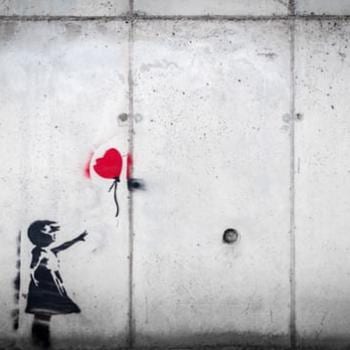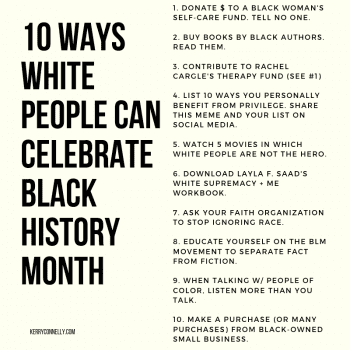My suitcase was huge.
I was on my way to Jordan – yes, THAT Jordan, the Middle East! — an amazing place of desert sun and ancient ruins; this land of gently spiced food that smells of smoky roasted meat, the freshest of vegetables, the warmest of newly baked pita. It’s a place filled with smiles, and it is warm not just for the sun that shines there, but for the hearts that beat in its people.
There is so much to tell you about this place. The ruins, where ancient peoples once walked — ancient places I climbed through, where I ran my hand over the antiqued polished stone, and almost heard the soft guttural rhythm of old Arabic, or perhaps Aramaic, or Greek. Places where there were once bustling markets, government seats and temples for worship. I stood there in the amphitheater, where maybe Antigone was performed — or the Hippodrome, where the horses pulled their chariots in the softest of sand. There, I stood, where history roared.
There is so much to tell you – stories among stories. But today, I want to tell you about Aseel*.
I met Aseel at Royal Jordanian headquarters. Her fresh, youthful face shone out from her pale pink hijab, her eyes a bright green bordered by lush, thick lashes that lined them into a wide almond shape. Like the rest of the people here, she was warm and friendly, if a bit shy at first.
We were there to meet Mr. Anwar Atalla, the Head of Marketing for the airline. I’ll be honest — I wasn’t excited about the meeting. I was in a land of ancient ruins, after all. Of good food and passionate people and art and culture and history. Why would I want to sit in an office watching a presentation?
But here is something I love: I love to peek into the lives of other people — especially people I think are radically different than me. I am still always surprised that I find more similarities than differences, more things to laugh about than fight about.
As I walked through what could have been any office in America, I passed the desks of the Jordanians who worked there. I saw what I would see at any U.S. office – desktop trinkets, frames holding pictures of beloveds, all the stuff of the personal space. I saw people talking on phones, pushing papers, smiling at each other’s jokes.
Not radically different at all.
We walked into the conference room and met Mr. Atalla, whose warm smile gave a charming crinkle to his eyes. His accent was soft, more British than Arabic; he seemed incredibly cultured – as if he should be the leader of some super-secret society in a Dan Brown book. He abandoned his presentation on the spot, choosing instead to get to know us personally. What did we do? Who are we? Where are we from?
He gave us a little history of Royal Jordanian — how the airline was started by the late King Hussein to connect Jordan with the world. Currently, they fly their stellar fleet to three cities in the U.S. — New York, Chicago and Detroit, with plans to expand to D.C. and Miami by 2018.
I told him I was passionate about understanding what women in Jordan were doing in the world. He was sure to point out — with that warmth in his voice that made us all laugh as he looked at me, that Royal Jordanian was the first airline to have an all-woman crew.
I told him about my suitcase. It was huge. But the kind woman who checked me in said since I only had one she’d waive the charge for being over the weight limit. We’d had a friendly exchange and I was on my way, but hours later, when I got to the gate, she was there. She remembered me. And she called me her friend.
Mr. Atwala’s eyes glimmered and his smile broadened as he teased, “She probably remembered you because of your huge suitcase,” and we all laughed.
This is something I’ve noticed about the Jordanian people: they love to tease, to get a rise, to find a reason to laugh. They smile. A lot.
We spoke some more, and soon enough, Mr. Atwala spoke the message that I’d heard from almost every Jordanian with whom I’d had the privilege to speak: Americans are welcome in Jordan. We are not so different. You are welcome, and we are friends.
Finally, as we finished, Aseel asked if she could have just one more moment. In English that was excellent but perhaps a little nervous, she told us about how she’d wanted to work for Royal Jordanian since college — she has a Masters Degree in Quality Management. She told us how she wants us to know that Jordanians are friendly.
And then she told us about her time in New York last year.
She was afraid to wear her hijab, she said, so she just wore a hat and scarf.
Imagine. She was afraid of being who she is here, in the United States of America – land of the free, home of the brave.
Let’s let that sink in for a moment. For all the fear we feel here about terrorists, about people who are different from us. About immigrants. Let’s think about the actions we take as a result of that fear.
Let’s think about how our reputation precedes us.
Most of us have let fear seep in around our empty spaces — a fear that gets excited by Islamic icons – the hijab, the prayer rug, the crescent moon. That fear is the type that puts up walls – real, figurative, and some even promised by politicians – that keep us smaller and boxed in, isolated from friendship, from experiences, from the different types of beauty in the world. The beauty of ancient ruins in countries we’ll choose not to visit. The beauty of delicious foods newly discovered. The beauty of friendships made across the sea.
Everything was fine for Aseel in New York, until one day she was on the phone talking to her brother in Arabic.
A woman started to curse me, she said, and her voice shook. We all let out a sound of pain as her eyes filled with tears of memory. She let her sentence hang unfinished; her shoulders slumped and she hung her head, tears lingering silently on her cheeks. After a moment, she collected herself and looked up.
I just want Americans to see our Jordanian smile, she said. I want them to see our smile.
We apologized for that woman. For our country, which seems to have forgotten what hospitality truly is, and what relationship means. Our country, which can demonize a young woman for simply wearing a piece of fabric on her head, (you know, the way nuns do?), or praying her prayers a different way, or speaking in a language different than ours.
Mr. Atwala and Aseel wanted to assure us that not all Muslims hate America; that there is not an extremist standing on every corner, waiting to blow us up. They just want us to see the Jordanian smile.
For the past ten days, I have been the recipient of that Jordanian smile, and I want you to see the Jordanian smile, too. Over the next few weeks, I’ll be posting about my experiences in Jordan, and hopefully, you’ll come to feel the warmth that emanates from its people.
In a small way, it will be how I make it up to Aseel – my friendship redemption, my way to love her with that crazy Jesus love.
*Aseel’s name has been changed to protect her privacy.












